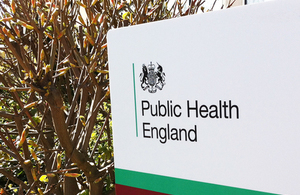Local authorities should offer NHS Health Check to all eligible
PHE’s Chief Executive Duncan Selbie has asked all local authorities to offer the NHS Health Check to all eligible people.

Speaking at Public Health England ‘s Cardiovascular Disease (CVD) Prevention Conference today (Thursday 8 February 2018), Chief Executive Duncan Selbie has called on local authorities to ensure that all local residents eligible for a free NHS Health Check get an invite – to help tackle the one in four premature deaths in the country caused by CVD.
The NHS Health Check is free for all adults in England aged 40 to 74, who have not yet developed CVD. It’s one of the largest health prevention programmes in the world, helping to detect and prevent early signs of cardiovascular diseases such as high blood pressure, heart disease, kidney disease, type 2 diabetes and dementia.
CVD is a leading cause of disability and death in the UK, affecting around 7 million people and being responsible for 26% of all deaths in England – estimated to cost the NHS around £9 billion a year.
Duncan Selbie, chief executive of Public Health England, said:
Since 2013, over 6.1 million people have taken an NHS Health Check. The programme is a cornerstone in England for the prevention of conditions such as CVD, which causes one in four premature deaths and places a huge strain on individuals, families and our healthcare system. We also know that it is the same risk factors causing many cancers and other preventable illnesses, so this is a hugely important programme.
The NHS Health Check has had much success and has the potential to prevent many thousands of premature deaths and ill health in England, but there is still much to be done. Every local authority in the country is required by law to ensure that all eligible people in their area are offered a check every 5 years. We must work together to increase numbers taking up the offer, in particular targeting our efforts to those at greatest risk.
There is good evidence that the programme is successful in identifying those at high risk of cardiovascular disease, but we also need to follow up with effective care and support for them.
The Conference, with over 500 health professionals expected to attend, including GPs and NHS Health Check providers, will focus on a number of ways that CVD risk can be reduced, including:
- ensuring equity and reducing inequality through CVD prevention programmes highlighting the importance of health care professionals in delivering behaviour change messaging for CVD risk reduction
- learning from a range of international CVD prevention projects
PHE has also recently published two documents focusing on CVD prevention:
- Size of the Prize provides region-specific statistics on the opportunity to prevent many thousands of heart attacks and strokes by improving the follow-up care given to those found to be at risk following an NHS Health Check
- the stocktake and action plan sets out how to further improve the impact of the programme over the next 5 years
Background
- PHE’s CVD Prevention Conference 2018 is taking place on 8 February at the Kia Oval, Surrey Cricket Club in London
- View national comparison data on NHS Health Check uptake
- The Heart Age Test is an innovative online tool to check your risk of having a heart attack or stroke - it tells you your heart age compared to your real age, explains why it’s important to know your blood pressure and cholesterol numbers and gives advice on how to reduce your heart age. The tool is a collaboration between PHE, NHS Choices, UCL and the British Heart Foundation.
About Public Health England
Public Health England exists to protect and improve the nation’s health and wellbeing, and reduce health inequalities. We do this through world-leading science, knowledge and intelligence, advocacy, partnerships and providing specialist public health services. We are an executive agency of the Department of Health and Social Care, and a distinct organisation with operational autonomy. We provide government, local government, the NHS, Parliament, industry and the public with evidence-based professional, scientific expertise and support. Follow us on Twitter: @PHE_uk and Facebook: www.facebook.com/PublicHealthEngland.